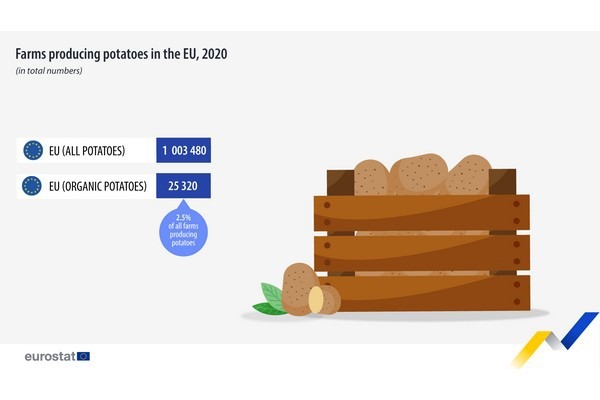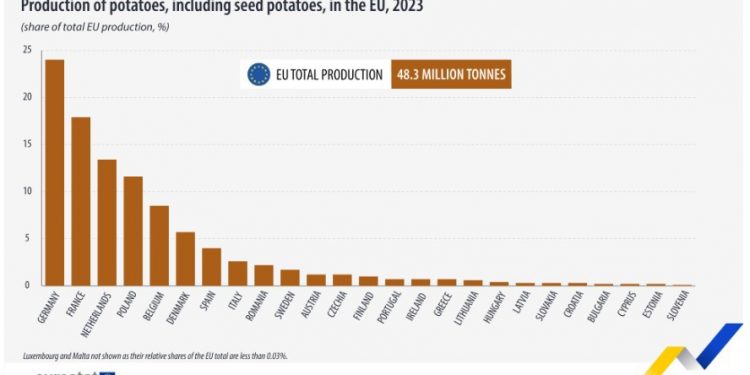A slight increase in 2023 masks the long-term decline in EU potato production, highlighting critical insights for farmers, agronomists, and industry stakeholders.
In 2023, the European Union witnessed the harvesting of 48.3 million tonnes of potatoes, representing a modest uptick compared to the 47.5 million tonnes recorded in 2022. This increase, although encouraging, occurs against a backdrop of a long-term downward trend in potato production within the EU. Since the year 2000, the EU’s potato harvest has decreased by a significant 36.7%, equivalent to 27.9 million tonnes. This data, sourced from a detailed Statistics Explained article by Eurostat, underscores the evolving challenges and opportunities in the European potato sector.
The decline in potato production is influenced by several factors, including shifts in agricultural practices, climate change, and changes in consumer preferences. Despite these challenges, the 2023 increase offers a glimmer of hope for stakeholders across the industry, from farmers and agronomists to food industry specialists.
At the national level, Germany emerged as the EU’s leading potato producer in 2023, contributing 11.6 million tonnes, or 24.0% of the total EU production. France and the Netherlands followed, accounting for 17.9% and 13.4% of the production, respectively. Together, these three countries represented more than half (55.4%) of the EU’s total harvested potato output, reflecting their critical role in the European potato market.
However, while these countries lead in conventional potato production, the adoption of organic farming methods remains relatively low across the EU. As of 2020, only 2.5% of the one million EU farms engaged in potato production were certified as organic. Austria stands out with the highest share of organic potato farms, where over a quarter (25.6%) of potato farms operate under organic practices.

For farmers, agronomists, and industry stakeholders, these statistics provide vital insights into the current state and future trajectory of the EU potato market. As the demand for sustainable farming practices continues to rise, there is potential for growth in organic potato production, albeit from a currently low base. Meanwhile, the dominant role of key producers like Germany, France, and the Netherlands suggests that strategic investments and innovations in these regions could have a significant impact on overall EU production trends.
In conclusion, while the slight increase in 2023 potato production is a positive development, it is crucial for industry stakeholders to remain aware of the long-term decline and consider strategies to counteract it. Whether through the adoption of new technologies, exploration of organic farming, or adapting to changing market demands, there are opportunities to strengthen the EU’s potato sector in the coming years.







